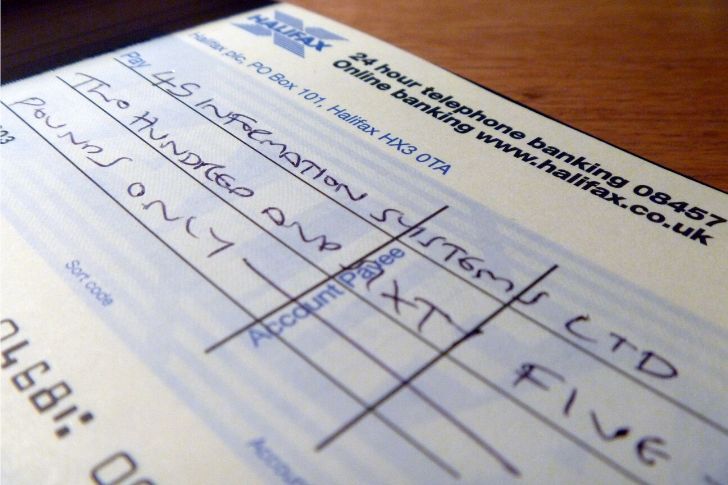Type of Bank Accounts 101
Having a bank account is one of the first steps we take to financial freedom. Perhaps you opened your first one with your parents, or you just opened a new one for your new business. Whatever it may be, bank accounts are a great way to start your saving and growth journey.
There are different types of bank accounts serving different needs. It’s best to know each type to match it with your financial goals as each type has its own tools, pros, and cons. Doing so allows you to maximize your investments, minimize fees, and manage your money easily.
Most banks and credit unions offer five types of bank accounts:
●Savings accounts
●Checking accounts
●Money market accounts
●Certificates of deposit
●Retirement accounts
Here’s a quick list of each bank account type for your guidance.
1.Savings Accounts
Savings accounts are the most basic type of bank account. Consumers use this type of account to save money and grow it since deposits collect interest. This type of account is usually the first official bank account anyone opens.
Parents often open a savings account for their children to encourage a savings habit. Teenagers open one for themselves to save up money from part-time jobs or household chores. It also helps them when they start to go to university for their degree.
Pros:
Savings accounts are great for a first account to build a saving habit. It is also a great way to earn an amount of interest for your deposit.
Cons:
Savings accounts often have a smaller or lower interest rate compared to money market accounts and certificates of deposit. They don’t usually come with a debit card for purchases (it depends on the bank). Additionally, banks usually limit consumers to no more than six withdrawals per month to help them keep their investments.
2.Checking Accounts
Checking accounts are perfect for everyday spending. The key feature of this type of account is that it’s linked to a debit card that you can use for purchases and to withdraw money from an ATM, and it also allows you to write checks.
Nowadays, checking accounts also provide online bill-pay services, making everything more convenient.
Pros:
Checking accounts allows you to deposit a paycheck or cash and make bills payments. It also provides the best place to keep cash for short-term use and small emergencies.
Cons:
Traditional checking accounts don’t offer interest, which means, if you leave your money there without spending it, it’s not going to grow a cent. It is also subject to different types of fees and limitations such as monthly maintenance fees and minimum balance requirements.
However, it’s best to ask your financial advisor for information on banks that offer waivable monthly fees and no maintenance fees.

3.Money Market Accounts
A money market account combines the features of savings and checking accounts. This type of account offers limited check-writing privileges and collects interest at a higher rate, thus giving the consumer an option whether to leave their money in the account for a short or longer period of time.
Pros:
A money market account is perfect for people with a larger sum of money to leave in an account. They must have investment money that they plan to grow because money market accounts provide higher interest rates.
Cons:
At the same time, money market accounts also have a higher minimum balance. Interest rates also fluctuate depending on the market. The bank also limits withdrawals only up to six times a month.
4.Certificates of Deposit
More commonly known as a CD, a certificate of deposit is similar to a savings account but it holds your money for a fixed period of time. This period of time usually lasts between three months to five years, depending on your selected maturity date or full term.
This system promises a higher interest rate than any of the previous types of accounts. This is the type of financial commitment that is similar to that of taking out a business loan.
Pros:
If you have invested money or money you don’t see yourself needing, growing it in a CD will be perfect. It will earn you more interest as time goes by.
Cons:
You can’t withdraw your money for emergencies without being slapped with an early withdrawal penalty. This penalty might wipe out everything you’ve earned and even eat away at your initial deposit.
5.Retirement Accounts
As the name suggests, these types of accounts are used to set aside money for one’s retirement. Many banks offer Individual Retirement Arrangements and 401k accounts.
Retirement accounts tend to have tax advantages, exempting the holder from paying income tax on the growth of your investments each year. However, you’ll have to pay taxes at certain points depending on what account type you have.
Pros:
This type of account is perfect for people who want to save up for their future. It eases your tax burden and might provide larger account balances in the long run.
Cons:
Nothing is ever really free in the world. With the tax exemption and occasional tax payments, it’s best to speak with your financial advisor or CPA to verify your position. It’s best to avoid being surprised with large amounts of tax to pay. Additionally, you’re highly discouraged to withdraw your funds early because it will require you to pay taxes and steep penalties.

In summary, it’s best to determine your goals before opening an account as each account has its own pros and cons. If you’re looking for something to manage your daily expenses, you may prefer to open savings or checking accounts. For investments, it’s worth looking into money market accounts, CDs, and retirement accounts.
Raten-Kauf / Pixabay
Pete/Flickr
Retirement Account/Flickr
